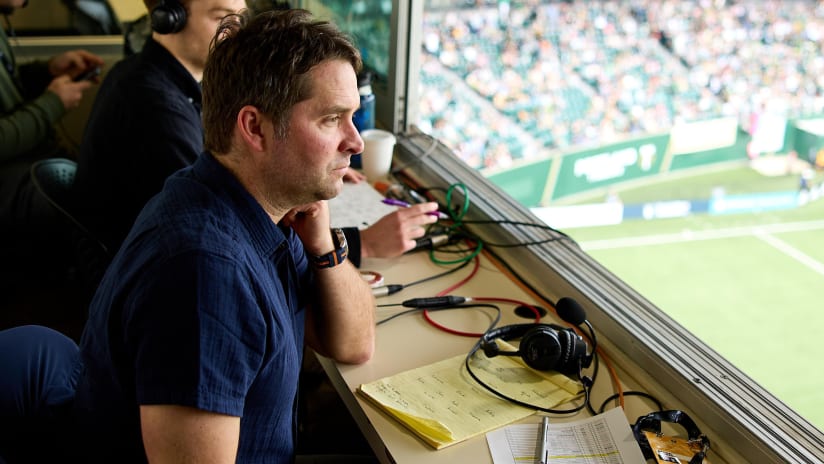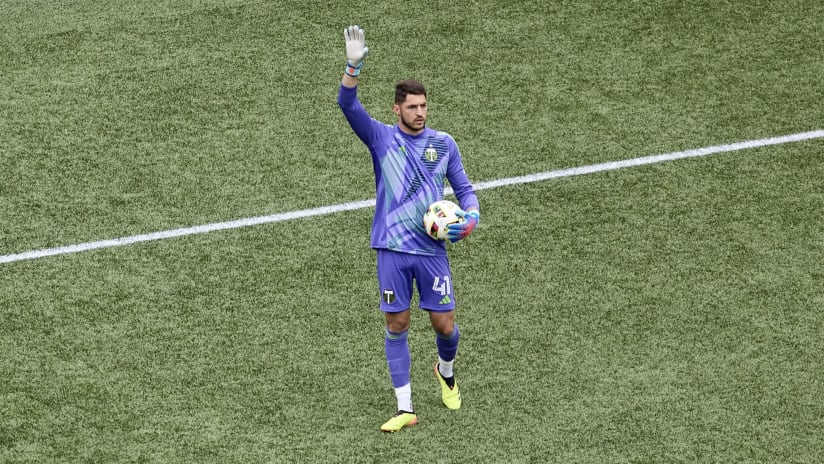If Friday was a reminder of the connections that, after six seasons, Portland Thorns FC and the National Women’s Soccer League have made within the rest of the soccer world, this weekend reminded us of something more balanced: the peaks and troughs that accompany almost anything that happens at a tournament like the 2019 FIFA Women’s World Cup.
Perhaps that’s just the nature of competition – the zero-sum game that’s inherent when separating winners from losers. For every Alex Morgan, 123rd-minute goal we see in an Olympic semifinal, there’s a Christine Sinclair hat trick that gets relegated to a lower rung of history. The United States won that game in London, back in 2012. Canada was left with the trough of a close call.
Sunday’s Australian debut at France 2019 wasn’t so dramatic, but particularly for Thorns fans who’ve followed the fight of Hayley Raso – in addition to tracking players like Ellie Carpenter and Caitlin Foord – the yins and yangs of an opening game were exposed. The light side saw a loved player reach a milestone four years in the making. The dark cast a new context around a favorite’s hopes.
In the limited time Raso has been in Portland this season, she’ll alluded to it a couple of times. “I just want [people] to know that I've made it,” she said, in March, “and I've reached my dream. To play in the World Cup. To play minutes.”
As a 20-year-old, she made her national team for Canada 2015. She didn’t play a minute, though, which gave her a clear goal for her second World Cup. She wanted to actually play, something that served as motivation as she went from hospital bed last September to, having fully recovered from a traumatic back injury, starting on Sunday against Italy.
It’s the spot that she’s used to, by now. Fans sing about it. “Raso on the wing.” She started on that right flank in Valenciennes, playing into the 69th minute as Australia opened what’s expected to be their most successful World Cup. From the moment she learned she’d start, to her time standing for her anthem, to the referee’s opening whistle, Raso saw her dream play out.
The dream, however, fell short of a full fairytale. Thirty-nine minutes short, to be exact. In the game’s 56th minute, Italian attacker Barbara Bonansea got redemption for an early goal which had been disallowed by video review, taking the ball off an Australian defender to equalize Sam Kerr’s first-half, penalty-kick score. Five minutes into added time, Bonansea finished breaking Australian hearts, heading down a restart at the far post to give the Italians a 2-1 upset. While many were picking Australia to challenge for this year’s title, game one temporary cast them to the bottom of their group.
Brazil’s victory over Jamaica later on Sunday pushed the Matildas back to third, but within the body of Australia’s opening 90 minutes, there was more to worry about than the final score. Bonansea could have had that opener earlier opener – a chance made possible when Australia allowed a pass to break three lines of defense. Manuela Guigliano could have had a goal before halftime, while Daniela Sabatino had a second-half score nullified by an offside call. No, those chances didn’t and shouldn’t have counted as goals, but in a game where Australia’s only score came from the penalty spot (albeit off a rebound), Italy’s opportunities fuel a sobering thought: Almost every chance in the Matilda’s World Cup opener was created by their opponents.
It’s not the debut Raso would have wanted, but in the contrast between her personal high and her team’s competitive low came a reminder about a major tournament’s balance. For so many players who’ll feature over the next six weeks, appearing in a World Cup is the crest of a journey, one that started as childhood dream and grew into adulthood job. The paths to get to France have been decades long, with a walk-out, anthem, and opening whistle allowing a life’s dream to come true.
But once that dream’s completed, reality becomes a wakeup, and for Australia, reality has struck a harsh note. It’s not unheard-of for a favorite to have a group-stage slip (the U.S. hasn’t had a perfect group stage since 2003), but you can only have one, and each slip demands a response.
For the Maltidas, that response has to come on Thursday, when the team faces group-leading Brazil. With some dreams fulfilled, it’s time for Australia to play to reality. It’s time for Australia to play to their favorite’s role.














